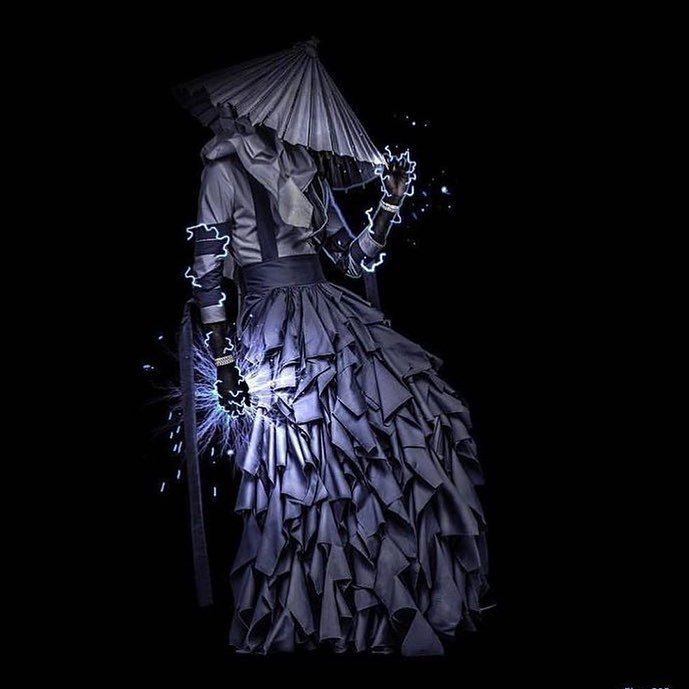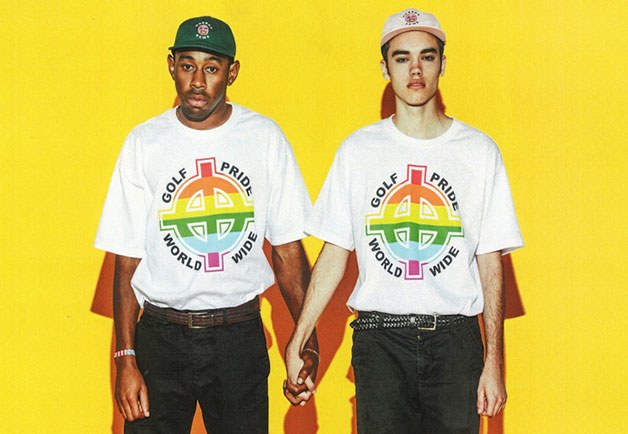This is the second part to a two-part series called Homosexuality in Hip-Hop. If you haven’t already, please read part one here.
In the first part of this series, we took a step back to look at how homosexuality was viewed in hip-hop for years, and how it’s slowly but surely progressed. While a lot of it was due to progressing views overall as a nation, some of those conservative ideas have still held a lot of people back. The big difference now, however, is that artists are using their voices to advocate for this cause, no matter what sort of response they might receive.
Similarly enough, I might receive a bit of backlash for mentioning this name in a hip-hop blog, but I couldn’t give a flying fuck. This song was so important and influential, especially considering the time and context, that it must be mentioned. One of the most eye-opening songs that talked about homosexuality was Macklemore’s “Same Love”. Say whatever you may about him (personally I found his music catchy but never gave it much more attention than what was on the radio), but you cannot deny the effect that that song had, whether positively or negatively. He starts the song by opening up about how he questioned his sexuality in the third grade. Do you know how many jokes you subject yourself to, especially as a rapper? While I do believe he received it with a bit more warmth because of his race, I don’t think that that takes away from the courage he had to release this song. He did it to create a revolutionary anthem, and for that I commend him. My heart breaks every time I hear the line, “if I was gay, I would think hip-hop hates me”, because of the truth behind it. Even Macklemore analyzes the use of “gay” and “faggot” as an insult to show that “gay is synonymous with lesser”. In fact, he stated that he created this song out of a place of frustration, given hip-hop’s outdated views on the topic and its strong influence on modern-day issues. Be the change that you want to see.
As ideas about homosexuality became less conservative, men’s fashion in hip-hop became much more diverse. Rappers started identifying as metrosexual without fearing the backlash. Instead, you could find them sitting front row next to Anna Wintour at some of the most notorious Fashion Weeks. ASAP Mob, whose individual members have received a lot of attention for their clothing choices, actually remarked on this in the “Work (Remix)”. A$AP Rocky rapped “You want that pretty Flacko? Ratchets, designer jackets. The same n* who jack it be the first to claim we faggots”, essentially recognizing that for the longest time people would talk shit on these looks because they were different or feminine or “gay”, just for them to inevitably copy them because they were the latest trend. And trust me, A$AP Rocky still gets roasted for his outfit choices. Sometimes they’re just obscure. But a lot of times it is because people still can’t wrap their heads around a hard-spitting rapper looking feminine, especially when for the longest time hip-hop artists had to look rugged and tough in baggy, low-hanging jeans, durags, and wife beaters. However, on a thread saying A$AP “took it too far” by wearing a dress, only to be called gay by 15 other people, someone did remark that there wasn’t much of a difference between wearing that and the XXL t-shirts that cats used to wear in the ’90s.
Another rapper who often gets accused of being gay simply because of how he carries himself is Young Thug. Not only has Young Thug been photographed in tutus and dresses, but he also occasionally dresses as a woman, as shown in the music video for “Best Friend”. His manager even argued that much of his popularity in Europe is because of his genderfluid taste in fashion and how that made him so much more relatable to the men there. When asked about his sexuality, he claimed that he’s neither gay nor straight, and while you would argue that that demonstrates someone extremely comfortable with their sexuality, he has made some choice remarks that make you question if he secretly harbors resentment towards these claims or is just plain ignorant. Ironically enough, Young Thug tweeted in response to Dwayne Wade over his transgender child that “all [he] wanna say to DWade son is god don’t make mistakes…” purposefully misgendering Zaya. Although Young Thug welcomes the criticism around himself, he did say that Lil Nas X shouldn’t have come out of the closet, although it wasn’t from a place of disapproval or hatred. Instead, he was more concerned that it would ruin his career, and that people would be more caught up on his sexual orientation than his music. However, if hip-hop artists live in fear of coming out for the rest of their lives, how is the narrative going to change?

While we are seeing a shift in fashion, we have also finally started seeing openly gay artists in the hip-hop industry-something a lot of the old heads openly stated that they couldn’t imagine. It only makes sense to start with the incredible Frank Ocean, who penned a letter in 2012 where he came out as bisexual. However, I believe that I need to digress for a second. At first, I split this blog post up in a few different ways, originally with it having a paragraph about gay rappers, lesbian rappers and singers, and then bisexual artists. But I realized that by splitting them up, I was giving more weight to certain orientations than others. For years, female rappers were able to rap about hooking up with women, having threesomes, and visiting strip clubs without anyone thinking about their sexuality. It was never exactly taboo and was not really thought of as a preference, but rather a fetish. That’s why it’s taken me until this very minute to formally come out as bisexual. I never felt that I needed to make a Facebook post, or that I needed to call my parents up to tell them. And then I started to think of what I felt, and while it made me anxious to do so, I finally started giving my feelings the attention they deserved. By the way mom and dad, yes I am awaiting your inevitable phone call. I feel as though I’m rambling a bit and I do apologize, but now imagine that anxiety as a man. As a black man. Who has been taught for so many years that loving a man is wrong, but now has to deal with the extra confusion of being attracted to both men and women. And now, imagine telling the whole world that, making you one of the few people courageous enough to do so in a music genre that is notoriously homophobic. Because that right there is what Frank Ocean did.
To initiate his public coming out journey, Frank Ocean never changed the pronouns in his music to disguise who he was singing to. In the song “Bad Religion”, he claims that he “can never make him love [him]”, openly singing about his love for a man. The song also contrasts the LGBTQ cause with religion, a popular dichotomy that has been present for years. He also sings about LGBTQ issues in relation to race and marriage. In “Forrest Gump”, Ocean also chooses to sing from the perspective of Jenny, making the whole song an ode to Forrest, the lead male of a classic movie, even referring to him as “so buff and so strong”. My favorite song of his, however, “Chanel”, is probably the most forward as he sings about how “[his] guy pretty like a girl, and he got fight stories to tell”, relating both sides of his love interest as well as both sides of his sexual preference to the backward C’s of the Chanel logo. Other R&B singers such as Syd, the lead singer of The Internet, can also be heard serenading her female lover in the song “Girl”. Kehlani, who identifies as pansexual and queer, can also be heard singing to both men and women as a reflection of her sexual orientation. R&B, which was always one of the most seductive and intimate genres, embraced homosexuality in a much more quiet manner, without much controversy surrounding those pronouns.
What fascinated me the most about Frank Ocean’s public letter was the fact that he was a member of Odd Future, a hip-hop collective who was known for their obscene and graphically homophobic lyrics. And yet, the group embraced him with open arms, especially Tyler, the Creator, who later came out as homosexual as well. Tyler, who used the word faggot over 200 times on one album, was banned from countries, concerts, and festivals for his disorderly conduct and hate speech. Because of his behavior, no one took him seriously when he used to tweet or speak in interviews about being gay. However, his album Flower Boy was what caused people to talk. The title itself caught everyone’s attention, with the lyrics reeling them in. His new style of lyricism showed a more vulnerable side as he rapped about drawing closets, kissing white boys, and thinking his feelings were just a phase. When I had seen him at Coachella a few years back, I remember him performing songs from this album with the set designed as a beautiful, vibrant garden or forest, with him climbing out of flowers. It was, without a doubt in my mind, his way of opening up to the world about his true self. And it was beautiful. A few years later, Lil Nas X was able to come out of the closet publicly with a bit of precedent set before him. After breaking records with his song “Old Town Road”, he took to Twitter to urge his listeners to revisit his track “C7osure”, including a rainbow emoji in the tweet and posting it on the last day of pride month. I do also think it’s important to acknowledge Young M.A., simply because of the amount of respect and notoriety that she has gained, despite being a gay female rapper. Young M.A. never switched up and tried to dress differently than how she felt. She chose to compete with the top dogs completely as herself and still claimed a title of a dope ass rapper. She can be heard on almost everyone’s projects about how she’s taking your bitch and she couldn’t care less who knows it.
Fast forward to the 2020 Grammys. Both Tyler, the Creator and Lil Nas X received awards, changing history forever. Although you can see thousands of threads on Facebook where people preach about how homosexuality is a disease and parents shouldn’t be feeding into gender fluidity, we are finally at a point where people can express how and what they feel and know that although some people will have shit to say, others will support them. It makes me proud to see just how far hip-hop has evolved and how accepting we can be of one another.
As always, I have curated a playlist below of the tracks mentioned. Please listen along as you read through and share your thoughts. Other posts can be found on the homepage of the site and at the three lines in the top right corner. Comment, share, and subscribe unless you hated it, then just keep giving me those views. It’s all love. ♥


1 Comment